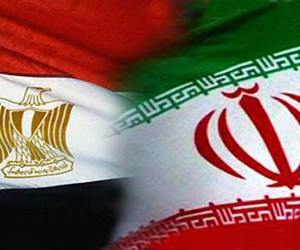 Iranian President Mahmoud Ahmadinejad has signed a project that sees the lifting of visa requirements for Egyptian tourists visiting the Islamic republic, Iran’s semi-official Mehr news reported Sunday.
Iranian President Mahmoud Ahmadinejad has signed a project that sees the lifting of visa requirements for Egyptian tourists visiting the Islamic republic, Iran’s semi-official Mehr news reported Sunday.
Canceling visa requirements for Egyptian tourists came a day after flights between Tehran and Cairo resumed since a 34-year hiatus.
However, Director of the Department of International Relations and Strategic Planning in the Egyptian Ministry of Tourism, Adel al-Jundi, said there were no links between the first batch of Iranian tourists visiting Egypt and Tehran canceling visa requirements for Egypt.
More than 50 Iranian tourists visited sites in southern Egypt on Sunday amid tight security as part of a bilateral tourism promotion deal that has generated some controversy.
Egypt makes its decisions after taking into consideration economic, trade, political and security factors, Jundi added.
Tourism plays a key economic role in Egypt.
Egypt is trying to win back holidaymakers after it was gripped by renewed political crisis.
Iranian tourists restricted in Egypt
The tourists, who according to a security official arrived on some of the first commercial flights between the two countries in three decades, will be restricted in their movement following objections from some ultraconservative Sunni Muslims to receiving visitors from Shiite Iran. Members of the Salafi movement in Egypt consider Shiites heretics, and fear Iran is trying to spread its faith in the Sunni world.
After visiting the city of Aswan Sunday, the group is expected to travel to the ancient city of Luxor in a boat down the Nile on Monday. The official spoke on condition of anonymity because he was not allowed to speak to the media.
Following the June election of Egypt’s Islamist president, Mohammed Morsi, Egypt and Iran agreed to promote tourism between the two countries, in a sign of warming relations. Diplomatic relations were frozen after Egypt signed its 1979 peace treaty with Israel and Iran underwent its Islamic Revolution.
Egypt’s Foreign and Civil Aviation Ministries have set regulations restricting the number and movement of Iranian tourists in Egypt, keeping Iranian tourists from visiting the capital Cairo — mainly because several shrines of revered Shiite figures are located there.
Iranian tourists would only be allowed to visit certain sites, such as the ancient cities of Luxor and Red Sea resort areas like Sharm el-Sheikh.
Minorities
In Egypt, the small Shiite population is harassed by the authorities and treated with suspicion, being arrested – ostensibly for security reasons – but then being subjected to torrents of abuse by state security officers for their religious beliefs.
Likewise Iran mistreats its Sunni population. In 2011 The iranians ordered its Sunni minority not to hold separate prayers in Tehran for Eid al-Fitr, the Muslim festival that brings the month of fasting to an end. They were instead asked to have a Shiite imam leading their prayers – something that is against their religious beliefs.
Hundreds of security police were deployed in the capital to prevent Sunni worshippers from entering houses they rent for religious ceremonies.
In recent decades, Iranian authorities have refused Sunnis permission to build their own mosques in Tehran. There is currently no Sunni mosque in the capital.
Iran also discriminates against the Ahwazi Arabs and has forced Persianification by enforcing Farsi as the official language and banning the teaching of Arabic in schools.
In 2011 The World Health Organisation ranked the city of Ahwaz as the most polluted in the world. It shouldn’t be surprising at all, when the vast majority of Iranian oil and gas (about 90%) is from Ahwaz.
The suffering of indigenous Arabs in Iran is immense as they mainly depend on farming and fishing for their livelihoods, in addition to the sources of their livelihoods being polluted they are being forced to migrate away from their lands without any compensation; forced to live in inhumane shanty towns without the basic necessities of life, according to a report by Daily News Egypt
Agencies

Leave a Reply
You must be logged in to post a comment.